SUMMARY
This is AI generated summarization, which may have errors. For context, always refer to the full article.
![[Newspoint] Topacio and Gadon](https://www.rappler.com/tachyon/2023/06/subjudice-june-30-2023.jpg)
Leading a pack of fellow lawyers, the self-seeking rabble rouser Ferdinand Topacio is accusing another group of lawyers of violating the rule that prohibits free and open discussions out of court of a case at bar – “sub judice” in legal parlance.
Here’s to give an idea where Topacio himself differs with the other side in fundamental persuasions:
He has built his reputation on lawyering for Gloria Arroyo, and is now calling out lawyers for Leila de Lima. Arroyo happens to have been partners, politically and otherwise, with Rodrigo Duterte. As justice secretary, De Lima took Arroyo to court, for plunder committed when she was president; and, as chairperson of the Commission on Human Rights, De Lima investigated Duterte for death-squad murders perpetrated when he was mayor of Davao City. Once elected president, Duterte got back at her with improbable charges, of drug trafficking. Denied bail at every turn, she has been in jail for nearly six and a half years now, counting the year Duterte has been out of the presidency, which only shows his enduring influence on the courts.
One thing about Topacio is that he rarely fails to insert himself in the limelight on a high-profile issue. As for those pañeros he has managed to herd, they can only be of similarly simple mind and motivation – a chance to ride on a reputation, even on so puerile an advocacy as sub judice.
Indeed, I find the reasoning for sub judice – to immunize the presiding judge from outside influence – rather curious. Judges who insist on the prohibition tend precisely to betray their susceptibility to that sort of undue influence or, worse, to use it as an excuse to avoid being themselves suspected as having prejudged the case. Either type, in any case, has no business sitting on the bench, judging people’s fates.
The reasoning might hold for trials by jury, in which case a panel of lay jurors, in line with the philosophy that, for justice to be truly equal, the accused ought to be judged by a jury of their peers. But then again, the philosophy is itself flawed. The operative word peer seems to me only made to fit into a patronizing concept. Even in its original usage, peer referred to a rank in a class society – the propertied nobility –and that sense of inequality has persisted to this day, and scandalously so in our own case.
Anyway, lay jurors being understandably susceptible to outside influence, every effort is made to keep them from it; for instance, apart from being warned against it constantly, they are sequestered for the entire trial. Still, where the case that is subject to sub judice is a matter of public interest, the gain hoped to be made for justice would seem outweighed by the loss caused the public by being denied the chance to assess the case for itself and the freedom to say what it thinks.
Sub judice thus amounts to censorship. That’s why it’s a source of frustration to journalists who take their role as inciters of public discourse seriously, as, indeed, part of their constitutional watchdog duty.
Although having none whatever to do with De Lima’s case, Topacio has been able all the same to insinuate himself by raising sub judice as a side issue. His timing, though, seems all wrong. His dubious cause is shown up by the recusal of the judge trying the third and last case against De Lima – she has been acquitted in the first two. The judge’s position became untenable when he was exposed, precisely out of court, in sub judice circumstances, for connections constituting conflict of interest.
Does Topacio now want the judge to reconsider his recusal and continue to sit in judgment of De Lima, as if his compromising ties to people responsible for her persecution never existed, erased by a technicality? I’m not sure myself that that makes a difference for Topacio, though. I think that’s going too far and deep into the issue for him. Ferdinand Topacio is only about profile – his profile.
A case in point
Larry Gadon is a different case, the more dangerous case, the precise opposite case in point: sub judice may have actually worked for him. It may be a stretch to put it all down to sub judice, but sub judice could not but have been a contributory culprit, seeing Gadon finally succeed in entering the orbit of official power even while on trial for the most telling case brought against him.
That case arose from his savaging, via social media, of the respected journalist Raissa Robles. It was an attack so rabid and vulgar even my well-immunized ears could not quite take it. Indeed, by any measure of civility and sanity, Gadon should be committed.
But that savagery has been confined to court – until only now. It is going the rounds of social media, but be warned: It is disturbing, and not just in parts, but in its entirety. It makes for a perfect capping to Gadon’s notorious career.
It’s a career memorable for, among other things, the impunity with which he has routinely slandered liberals and other adversaries, the multiple suits for his disbarment, and his enlistment for the filing of an impeachment case against Maria Lourdes Sereno, which set off the plot that was to end in her ouster by her own court as its chief justice. There’s more to remember for sure, but those alone, capped by Robles’ suit and all that put in perspective, would have given the public a fuller and fairer picture of Larry Gadon the compulsive craver of power.
He ran for the Senate three times and lost each time. But President Marcos, on whose ticket he last ran, just opened a shortcut to power for him: he appointed him Presidential Adviser for Poverty Alleviation – that notwithstanding his utter lack of credentials in economics or social work or any other discipline the job can use. In fact, if he had anything to show that might qualify him for public service, it remains un-shown, and not for any reason that stops him showing it, like sub judice.
I don’t know that the case against Gadon, if it had been blown open and met with enough public outrage, would have made Marcos think twice. Raissa Robles (English Lit., University of the Philippines, magna cum laude) happens to be the author of Marcos Martial Law: Never Again, the particular account of the President’s father’s murderous and plundering regime that the dictator’s heirs are now trying to erase by falsification and distortion.
If Robles had no chance with President Marcos, the Supreme Court may yet force an undoing of Gadon: it has just disbarred him. – Rappler.com
Add a comment
How does this make you feel?
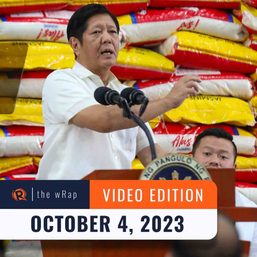
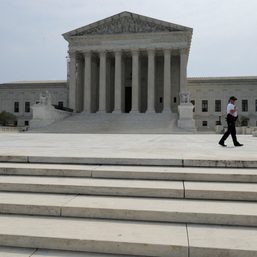
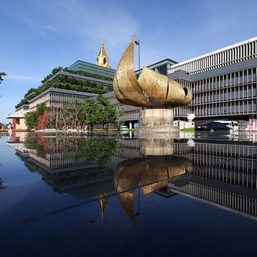
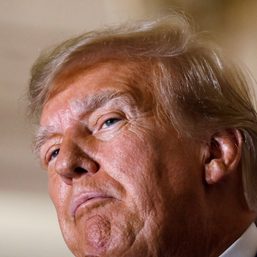
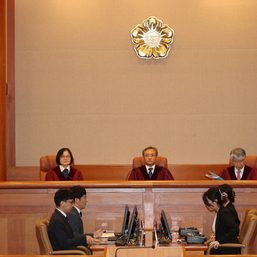

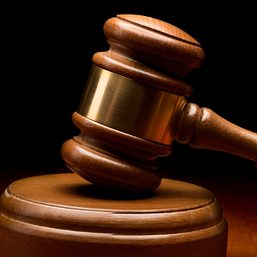
![[EDITORIAL] Duterte, Bato: Kung wala kayong kasalanan, walang dapat ikatakot](https://www.rappler.com/tachyon/2023/01/animated-Duterte-ICC-Jan-2023-carousel.jpg?resize=257%2C257&crop_strategy=attention)

![[Free to Disagree] De Lima stood firm. But some men are trash.](https://www.rappler.com/tachyon/2024/07/TL-Leila-de-lima-stood-firm-some-men-brave-some-trash-July-1-2024.jpg?resize=257%2C257&crop_strategy=attention)

![[Rappler Investigates] When China, Leila, Sara conspire](https://www.rappler.com/tachyon/2024/06/saraduterte-west-ph-sea-leila-de-lima-newsletter-june-27-2024.jpg?resize=257%2C257&crop=279px%2C0px%2C720px%2C720px)

![[OPINION] Rodrigo Duterte and his ‘unconditional love’ for China](https://www.rappler.com/tachyon/2024/04/rodrigo-duterte-xi-jinping-august-2019.jpeg?resize=257%2C257&crop=91px%2C0px%2C900px%2C900px)



![[The Slingshot] Lito Patay’s 4 hours and 38 minutes of infamy](https://www.rappler.com/tachyon/2024/07/Lito-Patay-4-hours-infamy-July-19-2024.jpg?resize=257%2C257&crop=233px%2C0px%2C720px%2C720px)





There are no comments yet. Add your comment to start the conversation.